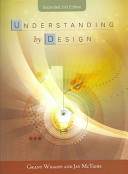The Six Facets of Understanding
Explanation: Sophisticated and apt theories and illustrations, which provide knowledgeable and justified accounts of events, actions, and ideas.
Why is that so? What explains such events? What accounts for such action? How can we prove it? To what action is this connected? How does this work?
Interpretation: The act of finding meaning, significance, sense, or value in human experience, data, and texts; to tell a good story, prove a powerful metaphor, or sharpen ideas through an editorial.
The object of interpretation is meaning, not merely a plausible account. Interpretation traffics in powerful stories, not abstract theories, for its insights. Understanding of this kind occurs when someone sheds interesting and significant light on current or past experience.
What does it mean? Why does it matter? What of it? What does it illustrate or illuminate in human experience? How does it relate to me? What makes sense?
Application: The ability to use knowledge effectively in new situations and diverse, realistic contexts.
How and where can we apply this knowledge, skill, or process? How should my thinking and action be modified to meet the demands of this particular situation?
Perspective: Critical and insightful points of view.
In the critical-thinking sense of the term, students with perspective expose questionable and unexamined assumptions, conclusions, and implications. When students have or can gain perspective, they can gain a critical distance from the habitual or knee-jerk beliefs, feelings, theories, and appeals that characterize less careful and circumspect thinkers.
From whose point of view? From which vantage point? What is assumed or tacit that needs to be made explicit and considered? What is justified and warranted? Is there adequate evidence? Is it reasonable? What are the strengths and weaknesses of the idea? Is it plausible? What are its limits? What is a novel way to look at this?
Empathy: The ability to get inside another person’s feelings and worldview. (Empathy is warm, Perspective is detached.)
This kind of understanding implies an experiential prerequisite that some people find troublesome. If someone were to refer to experiences like poverty, abuse, racism, or highprofile competitive sports and say, “You cannot possibly understand without having been there,” the implication would be that insight from experience is necessary for empathic understanding. To ensure greater understanding of abstract ideas, students must have far more direct or simulated experiences of them than most current textbook-driven courses allow. Think of an intellectual Outward Bound: Learning needs to be more geared toward making students directly confront the effects—and the affect—of decisions, ideas, theories, and problems. The absence of such experiences in school may explain why many important ideas are so misunderstood and learnings so fragile, as the literature on misconception reveals. Assessment also must pay greater attention to whether students have overcome egocentrism, ethnocentrism, and present-centeredness in their answers and explanations.
How does it seem to you? What do they see that I don’t? What do I need to experience if I am to understand? What was the author, artist, performer, or speaker feeling, seeing, and trying to make me feel and see?
Self-Knowledge: The wisdom to know one’s ignorance and how one’s patterns of thought and action inform as well as prejudice understanding.
Self-knowledge is a key facet of understanding because it demands that we self-consciously question our ways of seeing the world if we are to become more understanding—better able to see beyond our selves. It asks us to have the discipline to seek and find the inevitable blind spots or oversights in our thinking and to have the courage to face the uncertainty and inconsistencies lurking underneath effective habits, naïve confidence, strong beliefs, and worldviews that only seem complete and final. When we talk of subject matter “disciplines,” note the root meaning: There is a “discipline” involved that requires courage and persistence because rational understanding makes us question and sometimes undo our strong beliefs.
How does who I am shape my views? What are the limits of my understanding? What are my blind spots? What am I prone to misunderstand because of prejudice, habit, and style? How do I learn best? What strategies work for me?
Notes:
Aspects of understanding a concept rather than just knowing about it.
Folksonomies: teaching knowledge understanding
Taxonomies:
/business and industrial (0.475067)
/health and fitness/disorders/mental disorder/panic and anxiety (0.427867)
/shopping/toys/action figures (0.371038)
Keywords:
human experience (0.917744 (positive:0.224138)), highprofile competitive sports (0.872797 (neutral:0.000000)), intellectual Outward Bound (0.869184 (neutral:0.000000)), current textbook-driven courses (0.867422 (neutral:0.000000)), blind spots (0.856390 (negative:-0.666670)), inevitable blind spots (0.852228 (negative:-0.539654)), strong beliefs (0.835902 (positive:0.433066)), Understanding Aspects (0.804934 (positive:0.805838)), justified accounts (0.787812 (positive:0.478257)), apt theories (0.786761 (positive:0.486390)), plausible account (0.780683 (negative:-0.339095)), empathic understanding (0.775047 (positive:0.327503)), sharpen ideas (0.774540 (neutral:0.000000)), Interpretation traffics (0.770946 (positive:0.415686)), past experience (0.769337 (positive:0.645401)), critical-thinking sense (0.768909 (neutral:0.000000)), prejudice understanding (0.767458 (positive:0.389402)), unexamined assumptions (0.767436 (negative:-0.521874)), greater understanding (0.767186 (positive:0.621534)), abstract theories (0.767064 (neutral:0.000000)), circumspect thinkers (0.766487 (neutral:0.000000)), good story (0.764913 (positive:0.333758)), insightful points (0.759310 (positive:0.669251)), perspective expose (0.758326 (negative:-0.521874)), vantage point (0.757711 (neutral:0.000000)), rational understanding (0.756684 (positive:0.543507)), novel way (0.756363 (positive:0.844823)), powerful metaphor (0.755971 (positive:0.499374)), new situations (0.755629 (positive:0.639570)), powerful stories (0.755332 (positive:0.415686))
Concepts:
Knowledge (0.988403): dbpedia | freebase
Experience (0.726732): dbpedia | freebase
Empathy (0.705565): dbpedia | freebase | opencyc
Explanation (0.660011): dbpedia | freebase | opencyc
Theory (0.655622): dbpedia | freebase
Understanding (0.607390): dbpedia | freebase | opencyc
Critical thinking (0.514677): dbpedia | freebase | opencyc | yago
Question (0.511963): dbpedia | freebase





